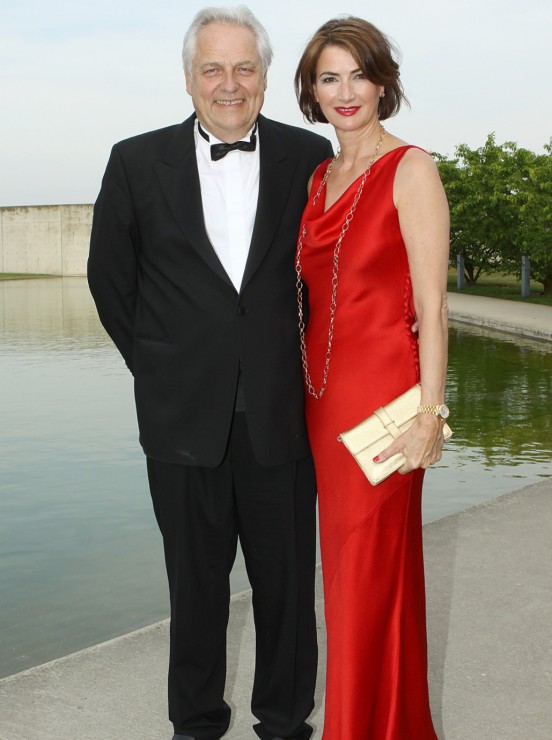
It has been over four months since Helge Achenbach, one of Germany’s top art advisers, was arrested. Yesterday, prosecutors in the city of Essen charged him for defrauding the late billionaire and Aldi supermarket heir Berthold Albrecht on 23 separate counts resulting in damages totaling approximately €23 million. Since June 10, the art adviser has been held behind bars under what is called Untersuchungshaft, a pretrial investigatory detention phase (see “€18 million Fraud Claim Against Art Adviser“).
Prosecutors charged Achenbach following an investigation into claims made by Albrecht’s widow, Babette Albrecht, that the art adviser allegedly marked up purchase invoices for artworks and vintage automobiles to earn higher commissions. However, in an exclusive interview with artnet News, Achenbach’s wife, Dorothee Achenbach, denied the accusations. “They had a good relationship,” she explained, speaking of her husband and Albrecht. “Helge showed Berthold a new world—the art world—and later the world of vintage cars, which was something that gave Berthold happiness. I am deeply convinced that Berthold did not feel scammed.”
According to Art Magazin, the collection that Albrecht built with Achenbach’s help included museum quality works by Picasso and Monet as well as works of postwar and contemporary art by Gerhard Richter, Roy Lichtenstein, and Sigmar Polke. Mrs. Achenbach told artnet News: “It’s important to point out that no loss of wealth took place. Some of the paintings have increased tremendously in value.”
In an earlier interview, the Berlin-based gallerist Michael Schultz told Monopol that the three to five percent commission that Berthold Albrecht negotiated with Achenbach was, in his opinion, inadequate. According to Schultz, “Nobody can cover their costs with three percent commission,” considering the amount of money and time Achenbach would have invested in research costs and travel. Schultz added, “When a collector’s lust is satisfied by the object he desires, a commission of three percent is too low. By far.”
According to Mrs. Achenbach, while Berthold Albrecht was prepared to spend enormous sums on paintings and vintage automobiles, Babette Albrecht may not have approved of all of her husband’s expenditures. Mrs. Achenbach told artnet News, “I had the personal impression that later, she did not agree with the purchase of the classic cars.”
In response to artnet News’s request for comment, prosecutors in Essen stated that they were not prepared to disclose the identity of the fraud victims or details of the individual transactions of artworks or automobiles at issue in their case. Babette Albrecht could not be reached for comment.
Mrs. Achenbach Files a Counter-Suit
At the end of September, the Düsseldorf District Court announced in a statement that Mrs. Achenbach filed a counter-suit against her husband’s accusers, claiming that she is the sole owner of four artworks valued at €530,000. Mr. Achenbach’s assets were frozen shortly after his arrest in June. The artworks include one painting by Günther Uecker, one painting by Thomas Schönauer, as well as two ceramic pieces. Mrs. Achenbach is scheduled to appear in court on November 11, only thirty minutes after her husband’s first court appointment (see “Achenbach’s Wife Wants her Artworks Back“).
Mrs. Achenbach says that irrespective of the outcome of the upcoming trial, Albrecht’s accusations and the resulting media attention have already taken their toll on her husband, his family, and the art community at large. Mrs. Achenbach confirmed that her husband’s health has deteriorated, having had to be rushed to a clinic due to heart problems. She says that Achenbach’s restricted visitation rights of two visitors every two weeks while in detention have left his young children unable to see their father.
Mrs. Achenbach said that even before he was “charged, [his] livelihood has been destroyed, [his] livelihood and reputation.”
In his interview with Monopol Michael Schultz went as far as to say that “the whole [art] industry has been dragged through the mud,” claiming that the media’s coverage of the Achenbach affair have reinforced the public’s view of the art market as a murky business lacking transparency.